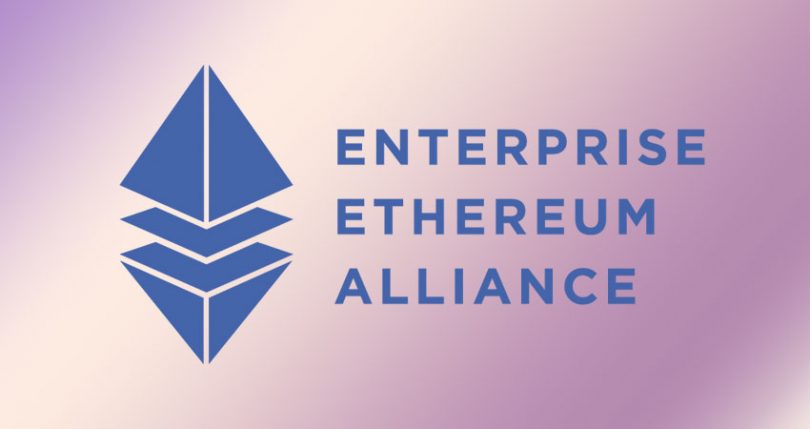Yesterday the Enterprise Ethereum Alliance (EEA) released two new sets of specifications. One is the second version of its client specifications. The other is a preview version for off-chain trusted compute. The latter is particularly useful for privacy solutions. It enables companies to temporarily move transactions off the main blockchain for processing and writing the result back to the main chain.
The latest announcement comes days after Hyperledger announced the integration of the Ethereum Virtual Machine (evm) which means Ethereum smart contracts can be used on Hyperledger Fabric.
Trusted compute
The EEA have released a preliminary specification (version 0.5) for application programming interfaces (APIs) to make it easier to do computation processes off-chain.
With Zero-Knowledge proofs (ZKP) it’s possible for a company to know that a user is over 18 without knowing their actual age. Likewise, it’s possible to perform a computation off-chain, and store the proof rather than doing the execution on the main chain.
In addition to ZKP, this would also support Trusted Execution Environments (TEE), like on Intel SGX chips as well as ARM’s TrustZone. Intel was one of the specification contributors.
The APIs also support secure multi-party computation (MPC). Here several parties have data they wish to keep private, but they want to make a group calculation based on that private data. For example, in a decentralized auction you might want to show the highest bid, without revealing the individual bids. MPC has a sibling, Homomorphic encryption, which allows computations to be run even though the data is unavailable.
“The EEA’s Off-Chain Trusted Compute Specification supports the Enterprise’s needs for privacy, security, and performance on the blockchain,” said EEA Executive Director Ron Resnick in a statement. “What’s more, enterprises can choose whichever trusted compute methods work best for their use case, whether it is for supply chains, banks, retail, or other large enterprise-based ecosystems.”
The APIs support several practical applications. Firstly, private transactions without disclosing details to other blockchain participants. There’s also the ability to disclose partial information. Transactions can be made off-chain as described. And finally, the API can be used for attested oracles which provide trusted external information. Oracles in the blockchain context refer to accessing external data like a feed of interest rates.
“Trusted compute is a fundamental technology to take enterprise blockchain use to the next level, and the Specification’s Trusted Compute APIs make it easier. This is a good day for the blockchain industry,” said Tom Willis, EEA Founding Board Member, and a Director at Intel’s Open Source Technology Center.







